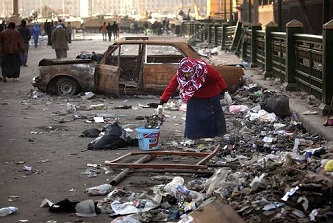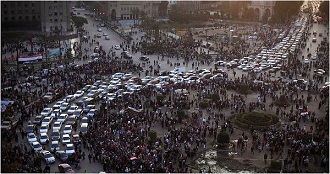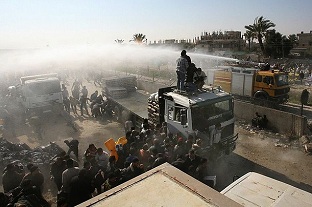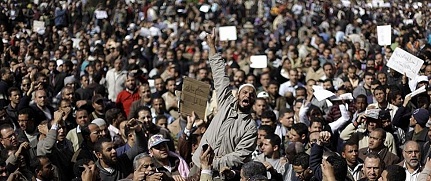Egypt’s revolution and Israel: “Bad for the Jews”
Ilan Pappé
Patrick Mac Manus Blog
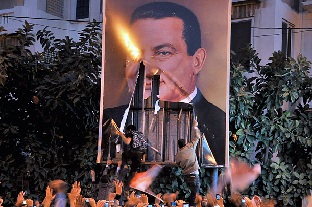
The view from Israel is that if they indeed succeed, the Tunisian and Egyptian revolutions are bad, very bad. Educated Arabs — not all of them dressed as “Islamists,” quite a few of them speaking perfect English whose wish for democracy is articulated without resorting to “anti-Western” rhetoric — are bad for Israel.
Arab armies that do not shoot at these demonstrators are as bad as are many other images that moved and enthused so many people around the world, even in the West. This world reaction is also bad, very bad. It makes the Israeli occupation in the West Bank and Gaza Strip and its apartheid policies inside the state look like the acts of a typical “Arab” regime.
For a while you could not tell what official Israel thought. In his first ever commonsensical message to his colleagues, Prime Minister Benjamin Netanyahu asked his ministers, generals and politicians not to comment in public on the events in Egypt. For a brief moment one thought that Israel turned from the neighborhood’s thug to what it always was: a visitor or permanent resident.
It seems Netanyahu was particularly embarrassed by the unfortunate remarks on the situation uttered publicly by General Aviv Kochavi, the head of Israeli military intelligence. This top Israeli expert on Arab affairs stated confidently two weeks ago in the Knesset that the Mubarak regime is as solid and resilient as ever. But Netanyahu could not keep his mouth shut for that long. And when the boss talked all the others followed. And when they all responded, their commentary made Fox News’ commentators look like a bunch of peaceniks and free-loving hippies from the 1960s.
The gist of the Israeli narrative is simple: this is an Iranian-like revolution helped by Al Jazeera and stupidly allowed by US President Barack Obama, who is a new Jimmy Carter, and a stupefied world. Spearheading the Israeli interpretation are the former Israeli ambassadors to Egypt. All their frustration from being locked in an apartment in a Cairean high-rise is now erupting like an unstoppable volcano. Their tirade can be summarized in the words of one of them, Zvi Mazael who told Israeli television’s Channel One on 28 January, “this is bad for the Jews; very bad.”






























